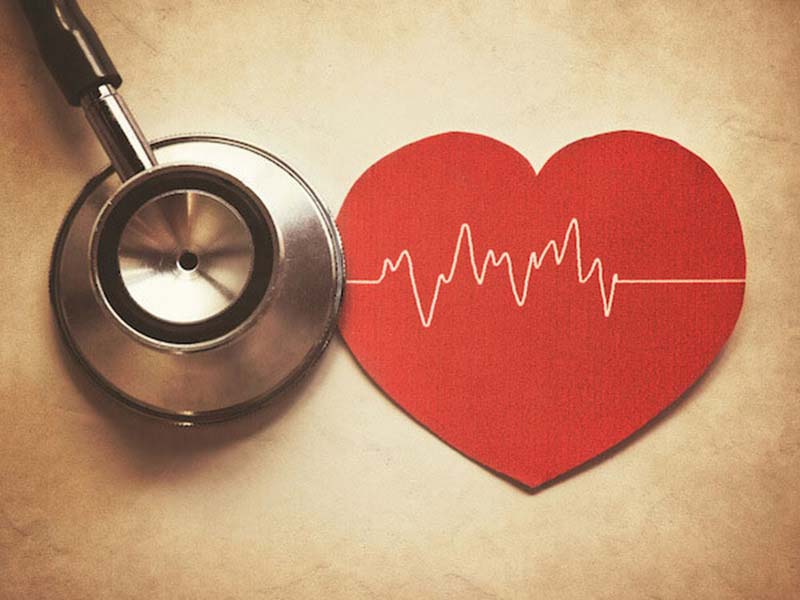10 Ways to Improve Heart Health
Your heart has a very important job and making smart choices to prevent heart disease will pay off for the rest of your life. No matter what age you are, anyone can benefit from taking a few extra steps to give their heart some TLC. Not exercising, eating poorly, and other unhealthy habits definitely take their toll on your body over the years. To ensure you’re setting your heart up for years of success, keep these tips in mind:
- Catch enough Z’s: Next time you’re thinking about pulling an “all-nighter,” think about how much better a good night’s sleep is for your heart! In a recent study, researchers found that adults who slept seven hours per night had less calcium built up in their arteries than those who only slept five hours and those who slept over nine hours. The quality of your sleep is important too – if you’re not feeling refreshed after a full night’s sleep, talk to your doctor about how to improve your sleep habits.
- Avoid diabetes: Having high blood sugar damages your arteries and increases your risk of developing a heart disease. Swapping out processed carbs for fiber-rich whole grains has been found to reduce the risk of diabetes. If you’re over the age of 45, or have other risk factors for diabetes, your doctor should test your blood sugar levels.
- Make sure to break a sweat: You should try to engage in moderate exercise at least thirty minutes a day, five minutes a week. While something is better than nothing, try to break a sweat! Also try to limit how much time you spend sitting every day, break up these long blocks of time by standing or taking a quick walk.
- Boost your fruit and veggie intake: Consuming a lot of plant-based, whole foods and cutting back on the processed foods you eat is better for your heart and overall health. Cutting out sugary beverages, such as soda and fruit juice, is a simple way to make a big impact on your diet.
- Know your BMI: The best way to find out if you need to shed a few pounds is to calculate your body mass index (BMI) – this number is based on your weight in relation to your height. You’re more likely to develop a heart disease if you’re considered overweight (if your BMI is 25 or higher). Eating less unhealthy foods and getting more exercise will help you take in less calories than what you’re burning off to help lower your BMI.
- Keep your heart age low: While you can’t reverse your age, it is possible to lower the age of your heart. The CDC created a tool to determine your “heart age” so that people can better understand their risk of heart disease. Your heart age is based on risk factors that you can and cannot change, such as smoking and eating healthy or age and gender, respectively. After creating this tool, the CDC found that 70% of Americans have heart ages that are older than their actual age. Men’s hearts were 7.8 years older than their actual ages and women’s were 5.4 years older. Knowing your heart age and working to lower it can help you to make some important lifestyle changes.
- Reduce the pressure: Having high blood pressure inflicts an extra force on your artery walls and can create scar tissue that makes it difficult for blood and oxygen to flow to and from your heart. If your heart is unable to get enough oxygen, or has to pump harder than it should, it can lead to serious damage. Try to follow a healthy diet, limit alcohol, reduce your salt intake, and exercise regularly – also get your blood pressure checked at least once every two years.
- Skip the saturated fats: Bad cholesterol can clog your heart and arteries with dangerous plaque. Saturated and trans fats are found in red meat, full-fat dairy products, and fried foods. Cutting back on these products is best for your heart health.
- Quit smoking: Most people know by now that smoking is bad for you, but it’s particularly bad for your heart. Kicking the bad habit and avoiding secondhand smoke is healthier for your body all around.
- Reduce your stress: Stress is a normal part of life, but managing your stress in a healthy way is really important. Having a hobby such as yoga, exercise, or meditating can help to keep your mental health and heart health in tip-top shape. Remember to relax!
The Brevard Health Alliance is here to help you in you journey to a healthier heart! To learn more about heart health or to schedule an appointment, contact us today.



















































































































































